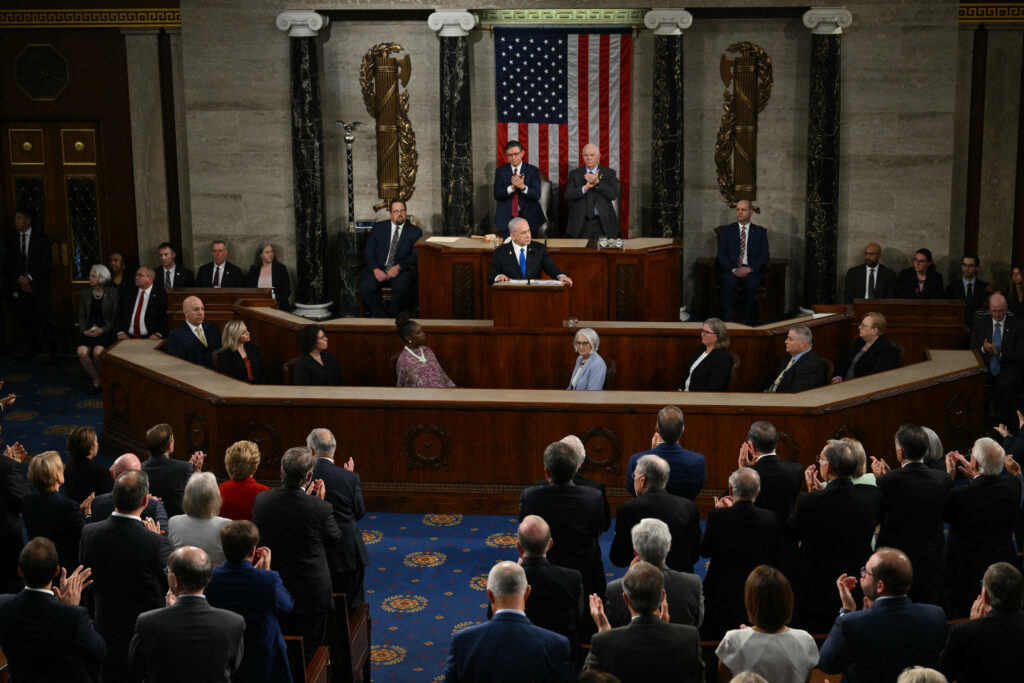The Trump Peace Plan: For Palestinians, the Promise of a State Should Focus on Good Governance and Less on Land
- - January 30, 2020
By Hussain Abdul-Hussain
Donald Trump’s “Peace to Prosperity” plan grants Palestinians autonomy over 15 percent of Mandate Palestine. At face value, the plan looks awfully biased toward the Israelis and prejudicial to the Palestinians. But that is true only if the Palestinians think of land as the end of, and not the means for, a better life.
When Palestinians and Zionists first locked horns in a fight over territory a century ago, land formed the backbone of their agrarian economies. Since then, globalization has granted an edge in agriculture to countries that encompass large tracts of lands and have abundant water and technology, making local agriculture anywhere else uncompetitive, sometimes even for domestic consumption. Globalization, similarly, consolidated the world’s heavy industry in a few countries with big populations, allowing them to engage in economies of scale.
Even Israel’s once-leading agrarian and industrialized economy has been transformed into one of “knowledge,” an economy that depends on human capital and technology rather than on land, population size or natural resources. Israel’s drive to control as much as possible of the land of Mandate Palestine is more a luxury than a necessity, one that the Israelis – with a globally competitive economy – can afford. The Palestinians cannot.
For Palestinians, however, the good news is that prosperity is possible without all the land they might think they need or want. All that they require is good governance, freedom of movement globally and within their state, and capital that – coupled with their abundant human resources – can turbocharge their economy and improve their lives markedly.
Such an economic promise is not a consolation prize, but a model that has shown enormous success elsewhere, whether it is the Asian tiger economies like Singapore and Hong Kong, or, closer to home, the Arab emirates of Dubai and Abu Dhabi.
While Trump’s vision is scant on details, the map provided in the plan seems to show that Palestinians will control Area A and Area B, as delineated by the Oslo Accords. Together, these two zones total 2,256 square kilometers, or 40 percent of the West Bank’s 5,640 square kilometers. This territory houses 2.8 million, or 97 percent, of West Bank Palestinians. The rest of the West Bank, known as Area C, has been contested, and – in any settlement – will probably look like a web of intersecting highways and tunnels that will make the proposed Palestinian state contiguous. A Palestinian state will also get the small and densely populated Gaza Strip, where its 369 square kilometers host 1.6 million Palestinians. The state will also home 350,000 Arab Jerusalemites, and also include their neighborhoods in the northeastern parts of the city. As envisaged in the Trump plan, a Palestinian state will probably cover a total area of around 3,000 square kilometers and have a population of close to five million.
So how does a possible future Palestinian state compare to the Asian tigers? In terms of area, Palestine will be five times as big as Singapore and three times as large as Hong Kong. In terms of population, Singapore’s stands at 5.6 million and Hong Kong’s at 7.4 million.
While smaller and much more crowded than a future Palestinian State, Singapore and Hong Kong have GDPs amounting to $340 billion and $350 billion, respectively, compared to the puny GDP of the Palestinian Territories, at less than $15 billion. Even more starkly, the per capita GDP of Singapore, Hong Kong and the Palestinian Territories were, in 2017, respectively, $58,000, $46,000 and $3,100.
To sweeten the pot, Trump’s Vision for Peace has promised the Palestinians $50 billion. While seemingly generous, this won’t be enough to cover the cost of the infrastructure required to make the promised Palestinian state contiguous, and to jumpstart the economy with investments in tourism resorts, high-tech infrastructure and other expenses.
Any peace plan should think bigger. Perhaps if the Palestinians were to show a willingness to embrace a state that is small and autonomous, but affluent and well-governed, world governments would step up and open their coffers.
Maybe by now Palestinians should realize that land is not more important than the lives of those who live on it. Maybe they should understand that the problem is not who controls the land, but how they control it. Think about it this way: if sovereignty over a large area were a key to prosperity, Lebanon should be rich; instead, Lebanon is broke.
Palestinians are not totally alien to the benefits of good governance. During his brief, yet successful, tenure from 2007 to 2013, Prime Minister Salam Fayyad delivered to Palestinians what generations of “history making” leaders could not: the promise of a working economy. A repeat of Fayyad’s experiment, on a wider scale and with more global support, might prove to be the elusive peace of mind that Palestinians have been seeking. SYNDICATION BUREAU
About the Author
Hussain Abdul-Hussain is the Washington bureau chief of Kuwaiti daily Al-Rai and a former visiting fellow at Chatham House in London.
Photo: The White House, shared on Flickr. (Public Domain)
More in This Series
More in This Series
- Jean-Loup Samaan
- - July 11, 2024
- Aisha Al-Sarihi, Ehsan Rasoulinezhad, Jinseok Sung
- - June 20, 2024








